Alon Aboutboul: "My late brother Avraham said to me, 'You will succeed in this world; I will be known after I die'"
Avraham Aboutboul, an artist, passed away six and a half years ago without musical recognition during his life. In an exclusive interview, his brother Alon talks about their life together, Avraham's return to Judaism, and the joint performance with Haggai Rosenk, in which they share Avraham's incredible songs with the world.
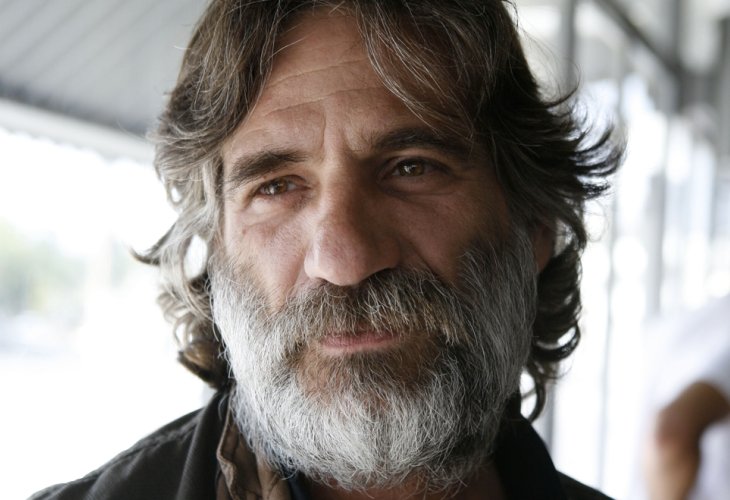 "For me, it's like being born again." Actor Alon Aboutboul in 2008 (Photo: Flash 90)
"For me, it's like being born again." Actor Alon Aboutboul in 2008 (Photo: Flash 90)Music of Angels: Six and a half years have passed since the death of Avraham Aboutboul - a pioneering poet and musical creator whose art has gained prominence only after his passing. Although his creations have become iconic in the realm of original Jewish music, he was not recognized during his lifetime. Avraham's brother, the actor Alon Aboutboul, recently participated in a joint rock concert with Haggai Rosenk, a creator, composer, and singer who has taken upon himself the mission of spreading Avraham's songs to the world. The performance was a cathartic experience for Alon, allowing him to experience Avraham's music. In an exclusive interview with the Hidabroot website, Alon bid farewell once again to his older brother, whom he had accompanied until his last breath.
Alon recounts that his older brother once told him in their youth, "You will succeed in this world; I will be known after I die."
Avraham Aboutboul deserves historical musical justice. Apart from being an actor, singer, and a *Breslov* Hasidic ba'al teshuvah, he was a poet and musical creator ahead of his time. Avraham was born into an Egyptian-Algerian family and grew up in Kiryat Ata. At 17, he moved to Jerusalem and studied at Ohr Somayach yeshiva, but left both the yeshiva and religion that same year. Later, in 1998, he returned to religious observance and studied at a yeshiva in Ein Kerem, Jerusalem. Avraham was diagnosed with cancer and passed away, leaving behind significant musical assets. In 2001, he partnered with Gadi Pogatch to establish the "Beit Hakedusha" ensemble, under which they recorded an album of the same name. In 2005, Aboutboul recorded the "Kochvei Or" album with guitarist Danny Maman and producer and technician Amit Golan, an album that was groundbreaking in its field. In the latter half of 2003, Gadi Pogatch released another disk of Avraham Aboutboul's works titled "Beit Hakedusha II" featuring materials created after the release of the "Beit Hakedusha" album. In September 2018, Shuli Rand released a farewell song to Aboutboul in his album "Ratzoh Vashov".
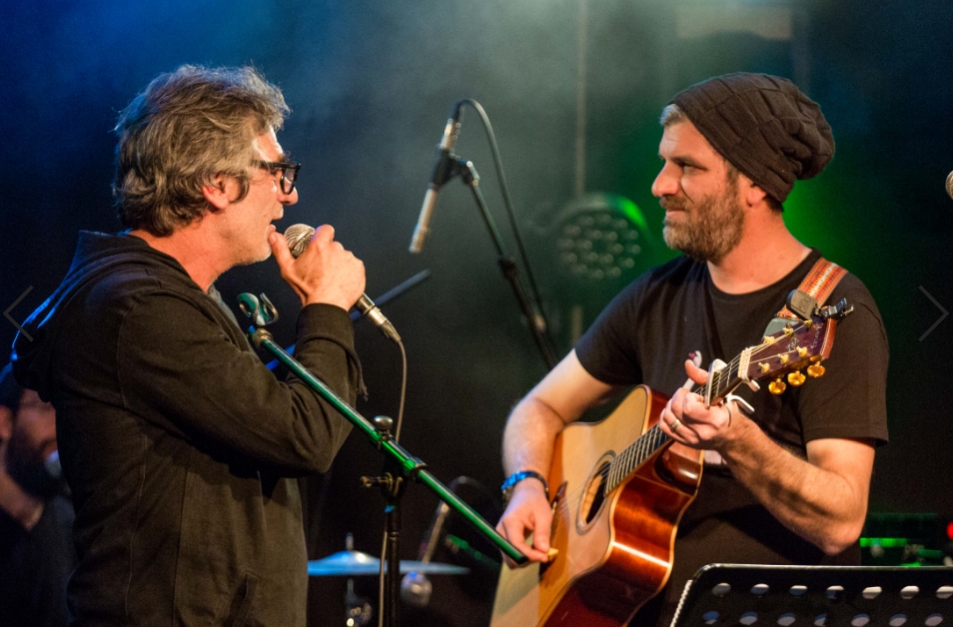 From the performance of Haggai and Alon (Photo: Asaf Feldmar)
From the performance of Haggai and Alon (Photo: Asaf Feldmar)Alon's younger brother, 53, married with four children, currently resides in Los Angeles. "Avraham was four and a half years older than me," Alon recalls. "We were very close siblings, sometimes it wasn't easy but we were definitely very close. Beyond being brothers, we had a deep mutual relationship. It was the most significant relationship for me in terms of mutual influence on life and a very close bond. We went through many upheavals. Avraham used to say that living without meaning wasn't something he was interested in, which disrupted many normative systems and left me pondering. As we got older, he imparted greater things to me. He would give me books with depth and tell me, 'Why do you roam around with your friends all day? Sit at home, think about life.' Toward the end of his life, he said to me, 'You know, we are not just brothers. Our souls are connected,' and I tend to agree with him." In the 1980s, Alon and Avraham participated in the musical "Blood Brothers," though they didn't perform together on stage.
"Everyone goes through their own experiences". Watch a song from the joint performance:
How did you react to his closeness to Judaism, the Torah, and commandments?
"It was a relief for everyone around him as well as for himself. His strengthening led to 15 years that were the most beautiful of his life with greater closeness to the family. In the first record, 'Beit Hakedusha,' you can hear the steps of return; it's music of angels. If there are various masters in the world, in Avraham's view, he was a master who descended to low places. He knew what was happening in the darkest places and wrote about the urge to ascend from there into the light. He had a yearning for meaning. He understood that life couldn't be meaningless. At 17, he touched upon religion, and at 19, after his first return to faith inspired by Rabbi Uri Zohar's outreach, he sought meaning and, when found it, couldn't fathom disengaging from it. It aligns with the Breslov philosophy of highs and lows. This approach suited him along with the freedom found in Breslov - to live an extraordinary life with great devotion. Returning to faith was beautiful. Even at the end of his life, the dedication of friends was remarkable. There was endless love and royal strength in his instructions and how he managed the room. His death was like water finally reaching their place after a long, tumultuous journey filled with twists and turns. The moment of leaving this world was truly majestic. Suddenly, a person becomes beautiful, peaceful, and after everything, it's calm. You could feel the soul leaving the body."
"The moment of leaving this world was majestic"
Alon accompanied his brother in his final days. "I tried to be with him as much as possible, even though I constantly had to fly. Whatever I could do, I did, and eventually, I was by his side when he passed away. The farewell was a long process. I accompanied him on his last journey and it was important for me to do so. He surprised me with the strength of the last month and a half. It taught us all a lesson on humanity, on what it means to be a person in such a situation. He lost his ability to play music with his hand and his voice. Every five minutes, we thought it was over, and suddenly he would get up and organize performances and meals. We had days like a long corridor, constantly filled with people, songs, fears, pain, surgeries - everything spinning around. He lived a turbulent life. He went through it all."
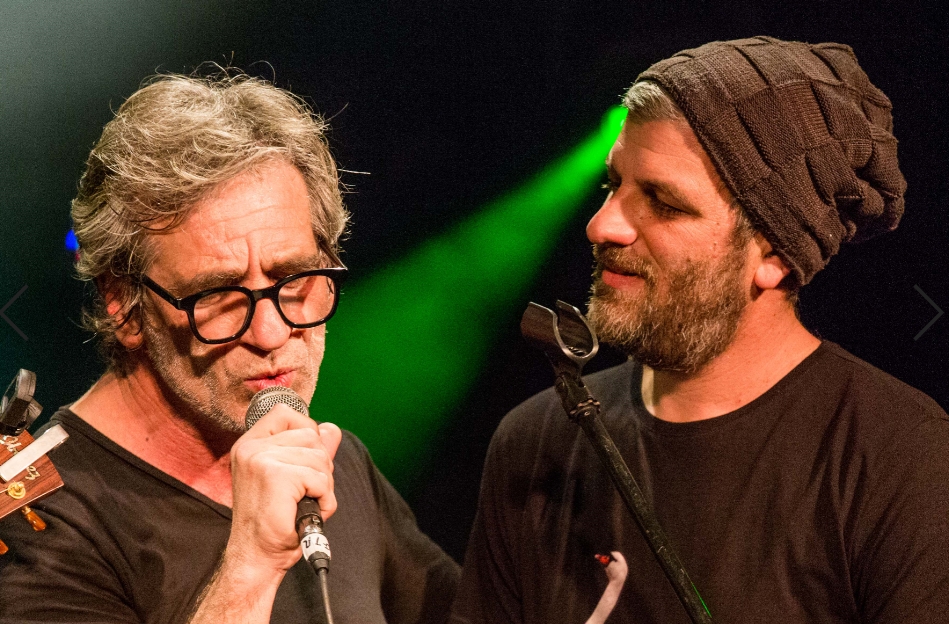 (Photo: Asaf Feldmar)
(Photo: Asaf Feldmar)Did he feel he was about to pass away?
"In retrospect, he didn't tell us because he didn't want to sadden us, but he knew he was going to die and was at peace with it. Avraham went through difficult nights and quiet nights, and when he passed, there was complete acceptance, a sense of 'this is how it should be,' not good or bad - something neutral, but not from a place of indifference. On the last morning, he told me, 'Wow, what a fright I had last night.' I realized it was the second night he experienced fear. He also engaged in a lot of seclusion at the hospital. He spoke with Hashem, and there were also cries. He was very focused. A friend said he had a regal quality. His death was like water finally settling after a long and tumultuous journey. The moment of departure from this world was truly majestic, really. Suddenly, one becomes beautiful and very serene, and after everything, peace came. You could feel the soul leaving the body."
Did Avraham's closeness to Judaism affect you?
"I didn't plan to return to faith because of him, although I traveled with him to Uman. I'm open to Judaism, and I studied the weekly Torah portion for a period in Bnei Brak. I don't exclude myself from it. I can comprehend the power of seclusion, and many ideas are clear to me. Sometimes, the stage is a place where you can engage in seclusion, precisely with the audience around. It's understandable to me. Immersion in a mikveh, for instance, is an amazing thing. I took a lot from my brother and will continue to do so; he's very present in my life. When we were younger, he told me: 'You will succeed in this world; I will be known after I die.'"
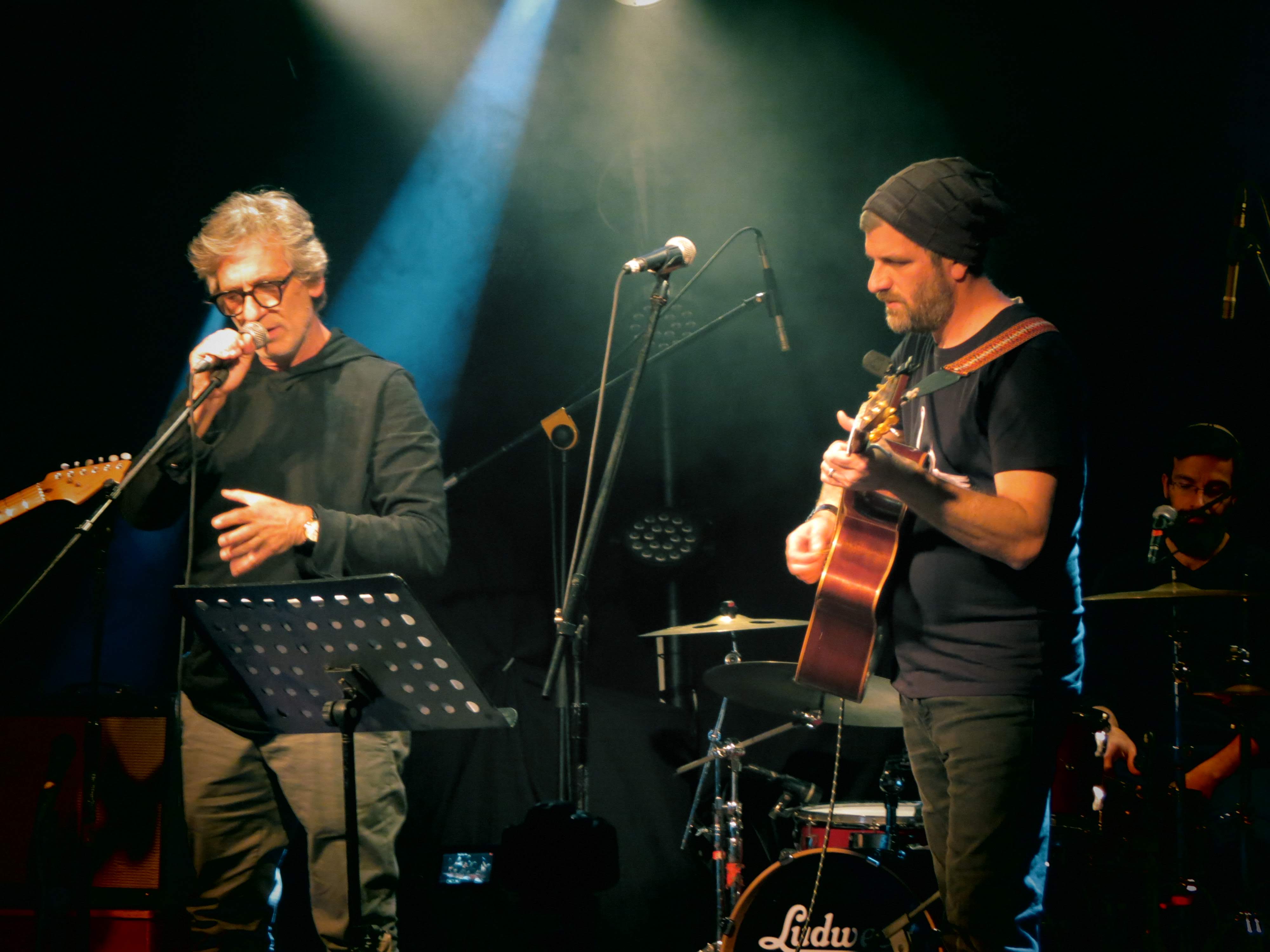 (Photo: Yishai Rosenk)
(Photo: Yishai Rosenk)Was there mutual appreciation between you?
"There was a struggle of envy. When I succeeded, there was the question of why he wasn't succeeding, what was the difference? In the end, there was a lot of appreciation, but there was also a disconnect because he stopped watching my movies. Despite everything, there was a lot of love between us. There was a loving and supportive appreciation."
In truth, Avraham did not receive recognition during his lifetime
"Overall, his journey was more internal. It was about being a poet and musician in the deep sense, moved by very internal things. It was very delicate and not popular in his time. Today, the world can accept them easily. In Avraham's work, there is compassion and a desire for harmony leading to something good."
About a month ago, Alon participated in a concert put on by Haggai Rosenk, "Being Born Again," featuring Avraham's songs. Alon came to the country, participated in the concert, and reconnected with his brother through music. "There was a lot of charm in the encounter with Haggai," he says. "I was moved to meet my brother in music. It's a very precise place where you can remember the person. It was a celebration. Finally, we performed together - my brother and I, with Haggai in the middle, who is all about unconditional love. It was wonderful and electrifying. Haggai is a heart. There is always talk that Avraham does not rest in heaven. In a way, when he passed away, a new brother was born to me. After all, he always wanted to bring me closer to Judaism, and that distanced me. I laugh now because in his absence there are no more barriers of this world and material, no barrier of questions and answers, emotions, there is only one high place and there is longing.
"I was very moved on stage. Avraham kept saying at the end of his life: 'I don't know anything. The main knowledge is not knowing.' Suddenly, the performance was a summary of our shared lives and an emotional release. I'm succeeding now, and so is my brother, and vice versa, which is wonderful. For me, it's like being born again. On this stage, I was born again, and I'm glad Avraham is receiving recognition as a creator."
So, it's fair to say you've left the country?
"I try to come to Israel as often as possible and visit. I deeply miss the country. On a personal-emotional level, it's difficult here in the US. I will always be a fish out of water, no matter how much I work, but there's something different in the mentality. I miss it, it's like being in exile."
Do you miss Avraham?
"Of course, what do you mean. I miss him a lot. I love him. He was such a charming guy. A unique, true Breslover, from what little I understand about Breslov."
Haggai's mission: Singing Avraham's songs
Artist and singer Haggai Rosenk continues to perform "Being Born Again," a rock concert with songs by Avraham Aboutboul. "We are planning more shows in Israel and abroad," he says this week. "We want Avraham's songs to be known.
"When Alon joined the concert, it did him good. He's a rocker and actor at heart. There was a mutual fertilization between the two of us. Before the show, when we met to practice the songs, we analyzed the texts. Alon approached the texts from his place, and I from mine. I brought optimism and joy to the texts, while he brought more sadness and sorrow. When it came together, it became a joyful melody. There was magic on stage, it was amazing."
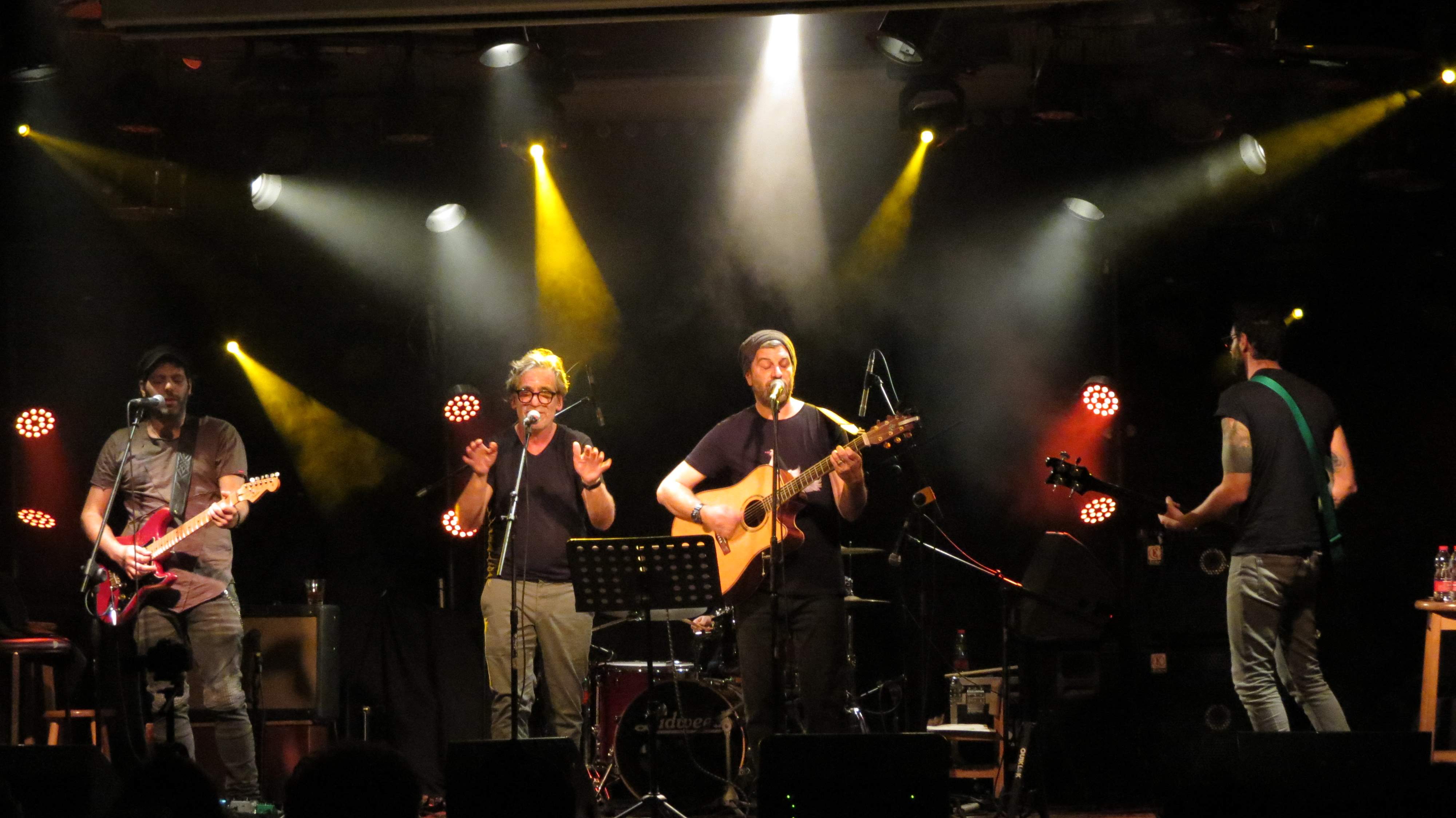 (Photo: Yishai Rosenk)
(Photo: Yishai Rosenk)Haggai knew Avraham during his life. "We met in the north, and since then our bond continued. I wanted to play a song with him in my concert, but Avraham was a very determined and authentic person. He let me try and when he saw I wasn't into it, he told me: 'Leave it. Until you find your key - you won’t sing with me' - and sent me on my way. Now I tell him: 'Avraham, I found the key and the tone, and I sing you and with you wholeheartedly.'
"Since Avraham's passing, I have been practicing and changing ensembles. I'm working on arrangements and have released two singles. There is a treasure hidden deep underground that people don't recognize. After the show we held two years ago, people called and said: 'We searched for the music of Avraham Aboutboul' - that's success to me."
Being Born Again - Haggai Rosenk hosts Alon Aboutboul:
Click here to listen to 22 tracks by Avraham Aboutboul on Hidabroot's Jewish YouTube.

